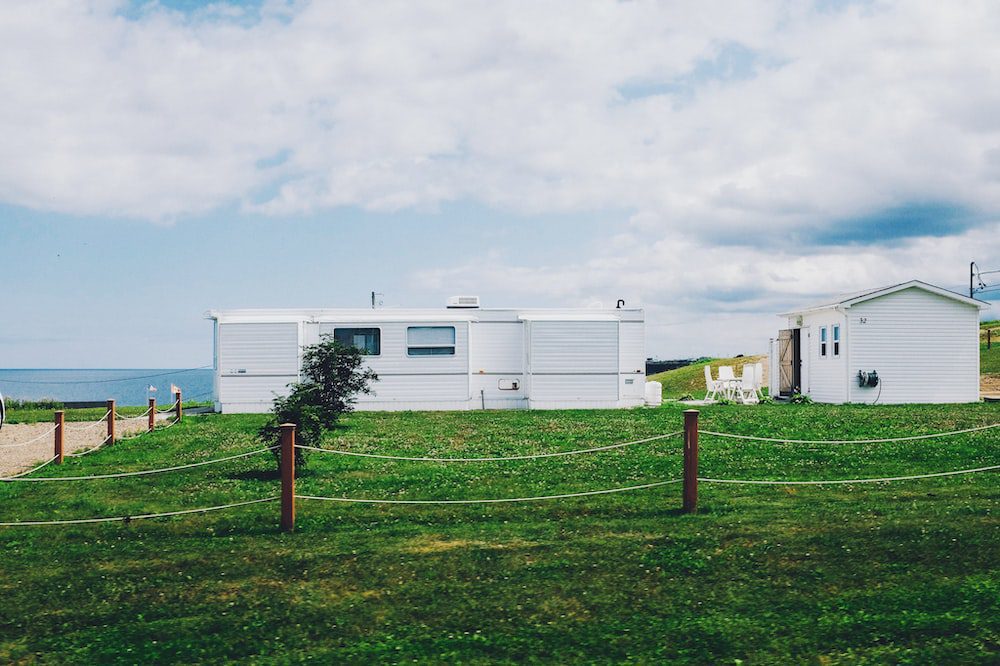How do you know you are making the right choice when purchasing a mobile home land for sale?
In Part 1 of our series on “Things to Consider While Buying Land for Mobile or Manufactured Homes,” we discussed the importance of factors, like zoning regulations, location, accessibility, property utilities, topography, and land characteristics in buying vacant land to park your mobile homes. But, that’s not everything you need to know.
Here are four more factors to consider if you want to buy land for a mobile home the right way.
1. Size and Layout of the Land
The size and layout of the land are significant factors to keep in mind because they determine whether you can effectively create a comfortable and functional living environment that meets your needs. But, here comes the challenging part – many people purchase land that only meets their present needs. What if your preferences change over time? Will the initial land investment efficiently adapt to your changing needs? Most families may require additional rooms as their family grows, from garages to storage sheds, decks, and even patios.
When considering a mobile home for sale on the market, keep in mind that the size of the land should accommodate not only the dimensions of your home but also leave ample space for other necessary features. Hence, before finalizing a land purchase, evaluate if there is room for potential growth. Consider if you will have ample space for potential additions like decks, patios, and parking space and if the land layout complies with local zoning property lines and road regulations to avoid legal disputes with the local authorities.
2. Land Ownership and Legal Considerations
Besides the size and layout of the land, anyone considering buying a mobile home land also needs to ensure the ownership and legal status of the property is legit. Verifying the ownership and legal status of the land helps protect you from potential disputes and title defects that may impact your ability to use or develop the land.
Public records like property tax records can help you confirm the identity of the current owner of the property. On the other hand, engaging a professional surveyor to survey the property will also ensure you establish precise boundaries, easements, or encroachments on the land, so you have a clear understanding of what you are purchasing. You may also want to obtain every necessary document from the current land owner, from the deed to the surveys, property tax records, and permits or zoning approvals to give you a legal stronghold in case of future resale.
More than this, consider consulting with a real estate attorney to help you navigate the complexities of land purchase while ensuring a smooth and legally sound transaction. Real estate attorneys will give you legal advice, help you review purchase contracts to ensure the terms and conditions are fair, and during the closing process, check that all legal requirements are met with the documents properly executed.
3. Cost and Financial Considerations
Buying land is a significant investment. It means that making the wrong decision will significantly influence your finances. To avoid this, first, evaluate the cost of the land and associated expenses. Factors like location, size, proximity to amenities, and local real estate market conditions can influence land prices. If you are also consulting with a real estate attorney or insurance, expenses like title insurance location and legal fees may also arise. Then again, these costs all depend on the location and complexity of the transactions. Researching initial costs associated with the land purchase will make the purchase smooth.
Furthermore, consider the tax fees around the location the land is situated. Property taxes vary from one location to another. So, research the tax rates in the area before purchasing. If your budget is on the low side and makes you struggle to complete your purchase, explore financing options designed for people looking to buy land for mobile homes to make your purchase attainable. Don’t forget to budget for site preparation, land improvements, and ongoing maintenance costs. Depending on the condition of the land, you may need to clear vegetation, level the site, install utilities, or construct a foundation. Budgeting for site proportion and land improvements ensures you are prepared for the process in the long run.
4. Environmental Factors and Natural Hazards
You don’t want to buy land that isn’t safe for you, your loved ones, and your mobile homes. So, take time to assess the environment. Conduct a thorough soil analysis to check for soil contamination, as it can pose health risks to you and your family and impact the structure of your manufactured home.
Also, research the geological history of the environment to know if it poses risks like landslides, earthquakes, or unstable terrain, as they can significantly impact the safety and stability of your mobile homes. Understanding these risks will enable you to take appropriate measures to mitigate potential dangers. Don’t forget to research the local weather patterns of the location so the land won’t be vulnerable to floods, extreme temperatures, or high wind zones. This knowledge will help you mitigate risks, protect your home and its occupant during your stay.
Conclusion
Purchasing your manufactured homes is only the first step. Buying a land for a mobile home is the next step to make living in your dream trailer, motorhome, or camper possible. Still, it is a process that requires careful consideration, professional advice, and thorough research, from the size and layout of the property to the zoning regulations, location of the property, utilities, land characteristics, legal ownership, cost, environmental factors, and natural hazards to help you protect your investments and general well-being.
Ultimately, while these factors may not seem important, they are, and considering these several factors will help you make well-informed decisions that align with your needs, goals, and expectations while ensuring successful and satisfying home placement.




